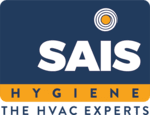Maintaining a clean and well-functioning exhaust system is critical for any commercial kitchen. It plays a vital role in fire prevention, air quality control, and compliance with health and safety regulations. Without proper maintenance, grease and debris can accumulate in the system, increasing fire risks and reducing efficiency.
But how often should you clean your commercial kitchen exhaust system? The answer depends on several factors, including the type of cooking, volume of food preparation, and regulatory requirements.
This guide will break down recommended cleaning schedules, key compliance rules, and why professional cleaning is essential to keep your kitchen safe and operational.
Why Regular Exhaust System Cleaning is Crucial
Neglecting your kitchen exhaust system can have serious consequences. Here’s why regular cleaning is essential:
1. Fire Prevention
Grease is highly flammable. If left to build up in the exhaust system, it can ignite, leading to dangerous and costly kitchen fires. The National Fire Protection Association (NFPA) reports that over 60% of restaurant fires are caused by cooking equipment, often spread due to grease accumulation in exhaust ducts. (You can learn more about our duct cleaning services here)
2. Health & Air Quality
A clogged exhaust system reduces airflow, allowing smoke, grease vapors, and contaminants to linger in the kitchen. This can cause respiratory issues for staff and leave food exposed to airborne grease and bacteria. Regular cleaning keeps air quality safe for both employees and customers.
3. Equipment Efficiency & Longevity
When exhaust fans are clogged with grease and debris, they work harder, leading to higher energy consumption and increased wear and tear. Regular cleaning improves efficiency and extends the life of ventilation equipment, reducing maintenance and replacement costs.
4. Regulatory Compliance
Commercial kitchens are required to follow local fire codes, health department regulations, and insurance requirements for exhaust system maintenance. Failing to comply can result in fines, legal action, or business closure.
To avoid these risks, you need to establish a consistent and professional cleaning schedule.
How Often Should You Clean Your Kitchen Exhaust System?
The National Fire Protection Association (NFPA 96) and 1850 compliance regulations provide recommended guidelines for commercial kitchen exhaust system cleaning. The frequency of cleaning depends on the type of food preparation, grease production, and cooking volume.
Recommended Cleaning Frequency Based on Cooking Type
| Type of Kitchen | Recommended Cleaning Frequency |
| High-Volume Cooking (Fast Food, Woks, Charbroiling, 24/7 Kitchens) | Monthly |
| Moderate-Volume Cooking (Casual Dining, Restaurants with Fryers & Grills) | Quarterly |
| Low-Volume Cooking (Hotels, Schools, Senior Living, Cafeterias) | Semi-Annually |
| Non-Grease Cooking (Coffee Shops, Daycares, Churches, Light Cooking Areas) | Annually |
These guidelines ensure kitchen safety and efficiency, but additional factors may require more frequent cleaning.
Additional Factors That Impact Cleaning Frequency
- Cooking Methods:
- Heavy grease-producing equipment (grills, fryers, woks) leads to faster buildup.
- Steam-based or baking operations produce less grease and may not need as frequent cleaning.
- Kitchen Hours of Operation:
- A 24-hour kitchen accumulates more grease than a part-time facility and will require more frequent cleaning.
- Type of Food Being Cooked:
- Bacon, burgers, fried chicken, and stir-fried dishes generate more grease than boiled or baked foods.
- Different cuisines use different oils which can accumulate faster and some are more difficult to remove.
- Exhaust System Design:
- Systems with longer duct runs and multiple bends trap more grease and debris, requiring more frequent maintenance.
- Narrow ducting has increased blockage and build up risks.
If you’re unsure about your kitchen’s cleaning schedule, consult with an experienced exhaust system cleaning professional to assess your specific needs.
Signs Your Exhaust System Needs Immediate Cleaning
Even if your kitchen follows a regular cleaning schedule, certain signs indicate it may need an urgent deep clean:
- Visible grease buildup on hoods, ducts, or fans.
- Increased smoke and heat in the kitchen.
- Strong grease odors lingering in the air.
- Dripping grease from the exhaust hood.
- Exhaust fan running loudly or inefficiently.
Ignoring these warning signs increases the risk of fire hazards, regulatory penalties, and costly repairs.
Keep Your Kitchen Safe & Compliant
Regular kitchen exhaust system cleaning is essential for fire prevention, air quality, and compliance with safety regulations. Cleaning frequency varies based on cooking methods, volume, and regulatory guidelines, but all kitchens must adhere to AS 1850 compliance standards.
Neglecting proper cleaning can lead to fires, health hazards, regulatory penalties, and equipment damage.
Why Choose SAIS Hygiene?
At SAIS Hygiene, we specialise in professional kitchen exhaust system cleaning that meets AS 1850 compliance requirements. Our experienced technicians ensure your system is thoroughly cleaned, keeping your kitchen safe, compliant, and fire-risk-free.Contact us today for a free consultation and ensure your kitchen meets the highest safety and hygiene standards. Contact SAIS Hygiene now!!
